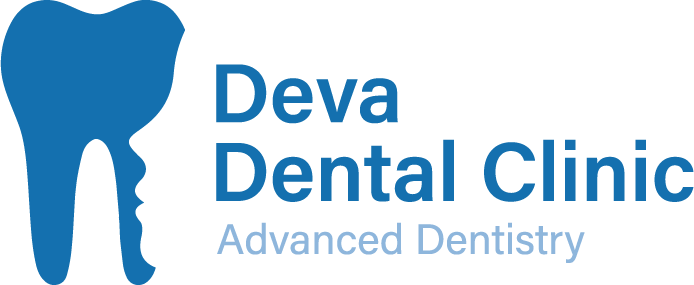Post Operative Implant Instructions
Post Operation Concerns:
When should I be concerned?
Most surgery patients are unfamiliar with what normal post-operative recovery is and what is unusual. Here are a few things to look for:
Bleeding
Intermittent bleeding or oozing is normal. Bleeding should never be severe. If it is, try repositioning fresh packs to allow you to place firm pressure over the area. Always hold pressure for a minimum of 45 minutes at a time. If bleeding persists, you may substitute a tea bag for the gauze. Wet the tea bag with hot water, squeeze it damp-dry and wrap it in moist gauze. Apply pressure over the surgical area for 45 minutes. If bleeding remains uncontrolled, please call our office. Gauze will look light pink, spotted, or rusty coloUred when bleeding is controlled. When bleeding is controlled, gauze may be left out.
Swelling
Often, there is some swelling associated with oral surgery. You can minimize this by using a cold pack or ice bag wrapped in a towel and applied firmly to the face or cheek adjacent to the surgical area. This should be applied 20 minutes on and 20 minutes off during the first 12 hours after surgery.
Nausea
In nearly all cases, if you experience nausea it is most likely from your prescribed narcotic pain medication. Allow nausea to subside and take a smaller dose at your next interval. Often, breaking the tablet in half is sufficient to control pain without nausea. If nausea persists, please call our office.
Diet
Chewing on your implant before your surgeon has determined that it is completely healed may make it fail. Take out gauze packs while eating. Eat any nourishing food that can be taken with comfort. Avoid extremely hot foods. Avoid foods like nuts, sunflower seeds, popcorn, etc., that may get lodged in the socket areas. Over the next several days, you can progress to solid foods at your own pace. It is important not to skip meals! If you take nourishment regularly, you will feel better, gain strength, have less discomfort, and heal faster. Do not use a straw, spit, or suck on anything. If you are diabetic, maintain your normal eating habits as much as possible. Follow instructions from us or your physician regarding your insulin schedule.
Post Operative Instructions:
Use Caution
Do not disturb the surgical area today. Do not rinse vigorously or probe the area with any objects or your fingers. DO NOT SMOKE for at least 48 hours, since it is detrimental to healing.
Brushing
Begin your normal hygiene routine the day after surgery. Soreness and swelling may not permit vigorous brushing of all areas, but please make every effort to clean your teeth within the bounds of comfort. DO NOT USE a Sonicare around your implants until your surgeon gives you authorization. Usually, this will be 4 to 6 months. DO NOT USE a Waterpik or electric flossing device. Be aware of any other device or mechanism that can introduce vibrations! These devices can cause implant integration issues!
Syringe
If you were given an irrigating syringe, start using it the fifth day after surgery to keep sockets clean. Mix one teaspoon of salt dissolved in a tall glass of warm water. Fill the syringe with the warm salt water and irrigate any open sockets gently, especially after eating.
Sharp Edges
If you feel sharp edges in the surgical areas with your tongue, it is probably the bony walls that originally supported the teeth. Occasionally small slivers of bone may work themselves out during the first week or two after surgery. They are not pieces of tooth, but if they are bothersome, we will remove them. Please call the office if you are concerned.
Mouth Rinses
Keeping your mouth clean after surgery is essential. You have been given a prescription for Peridex oral rinse: Rinse for 30 seconds with Corsodyl 3 times a day. Use Corsodyl only during the first 2 weeks of healing. Do not eat or drink for 30 minutes following the rinsing.
Temporary Appliances
In most cases, a temporary appliance is provided by your general dentist for aesthetics and space maintenance. This appliance should not put pressure on the tissue. Pressure from the appliance can cause the failure of the implant. If pressure is felt from the appliance, it needs to be adjusted, by our office or your general dentist.
Following these instructions will assist you, but if you have questions about your progress, please call
me on 07533804864. It is our desire that your recovery is as smooth and pleasant as possible.
Dr Alexandros Nikolaou
Lorem ipsum dolor sit amet, consectetur adipiscing elit?
Lorem ipsum dolor sit amet, consectetur adipiscing elit. Curabitur dignissim neque metus, non porttitor purus cursus non. In hac habitasse platea dictumst. Duis faucibus lacus sed nulla congue congue. Morbi a ligula lobortis, maximus orci in, egestas dui. Duis fringilla ut nunc vitae vulputate.
Lorem ipsum dolor sit amet, consectetur adipiscing elit?
Lorem ipsum dolor sit amet, consectetur adipiscing elit. Curabitur dignissim neque metus, non porttitor purus cursus non. In hac habitasse platea dictumst. Duis faucibus lacus sed nulla congue congue. Morbi a ligula lobortis, maximus orci in, egestas dui. Duis fringilla ut nunc vitae vulputate.
Lorem ipsum dolor sit amet, consectetur adipiscing elit?
Lorem ipsum dolor sit amet, consectetur adipiscing elit. Curabitur dignissim neque metus, non porttitor purus cursus non. In hac habitasse platea dictumst. Duis faucibus lacus sed nulla congue congue. Morbi a ligula lobortis, maximus orci in, egestas dui. Duis fringilla ut nunc vitae vulputate.
Lorem ipsum dolor sit amet, consectetur adipiscing elit?
Lorem ipsum dolor sit amet, consectetur adipiscing elit. Curabitur dignissim neque metus, non porttitor purus cursus non. In hac habitasse platea dictumst. Duis faucibus lacus sed nulla congue congue. Morbi a ligula lobortis, maximus orci in, egestas dui. Duis fringilla ut nunc vitae vulputate.
